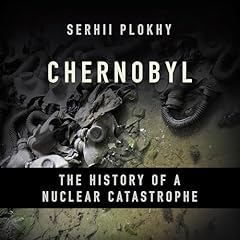
Melting Sun
The History of Nuclear Power in Japan and the Disaster at Fukushima Daiichi
No se pudo agregar al carrito
Add to Cart failed.
Error al Agregar a Lista de Deseos.
Error al eliminar de la lista de deseos.
Error al añadir a tu biblioteca
Error al seguir el podcast
Error al dejar de seguir el podcast
 Exclusivo para miembros Prime: ¿Nuevo en Audible? Obtén 2 audiolibros gratis con tu prueba.
Exclusivo para miembros Prime: ¿Nuevo en Audible? Obtén 2 audiolibros gratis con tu prueba.Compra ahora por $24.28
-
Narrado por:
-
Nick Gallagher
Almost 24 hours to the minute since the tsunami hit Fukushima Daiichi, Unit 1 exploded. The building wrenched apart, sending shards of irradiated concrete and metal knifing through the air in all directions. The reactor’s massive heavy-duty gantry crane bent like a twig and collapsed onto the refueling floor control room, crushing everything that wasn’t expelled in the blast. Outside, chunks of debris rained down on the fire crew, injuring five and shredding the hoses they had just laid. Among the injured was the plant’s own fire chief, whose arm snapped when a piece of steel hurtled through the window.
In March 2011, a 15-metre tsunami wiped out long stretches of Japanese coastline, killing thousands. Flooded cooling systems at the Fukushima Daiichi Nuclear Power Plant failed as hundreds of men and women battled to save three reactors from destruction in what became the most expensive industrial accident of all time.
Melting Sun spans 150 years of little-known history to retell how Japan evolved from the first victim of atomic energy to its most passionate supporter. It is a story of innovation and determination, but also of collusion, deception, overconfidence, failure, and ultimately, death. From a nuclear ship stranded at sea after leaking radiation on its maiden voyage and to the unimaginable final days of two men treated for extreme overexposure, to Fukushima itself - the only accident comparable with the infamous Chernobyl disaster.
©2022 Andrew Leatherbarrow (P)2022 Andrew LeatherbarrowLos oyentes también disfrutaron:




















Las personas que vieron esto también vieron:

The author, in my opinion, does a very good job at remaining as neutral on the subject of nuclear power as possible. He is critical of TEPCO and the Japanese nuclear industry as a whole due to their corruption and lack of a decent safety culture while giving credit to them and their people when they made good decisions. I have been a fan of his work since reading Chernobyl 01:23:40 and am glad to see him making more quality content.
The narrator does a good job of explaining everything in a cadence and tone that kept my attention the entire time. He did mispronounce a couple of Japanese words, but the vast majority of them were correct and I know how hard that is to do. He even was able to get the pronunciation of a couple of commonly mispronounced French nuclear agencies correct, one of which I've been mispronouncing for years.
Overall, it is a great title and I highly recommend it for anyone wanting to learn the history of nuclear power in Japan, the Fukushima Daiichi disaster, and its aftermath.
Extremely Informative
Se ha producido un error. Vuelve a intentarlo dentro de unos minutos.
History is facts, this is most definitely not.
Se ha producido un error. Vuelve a intentarlo dentro de unos minutos.


